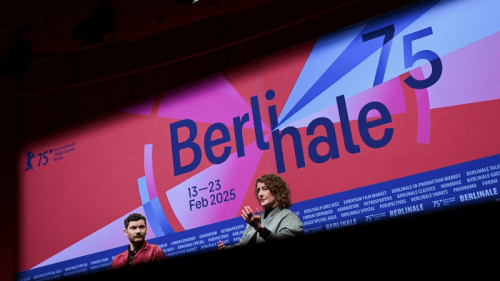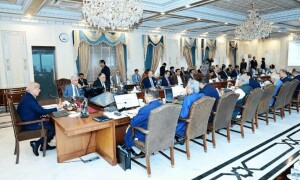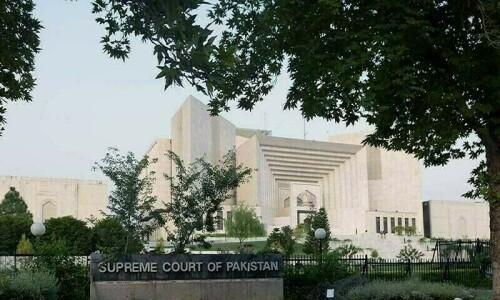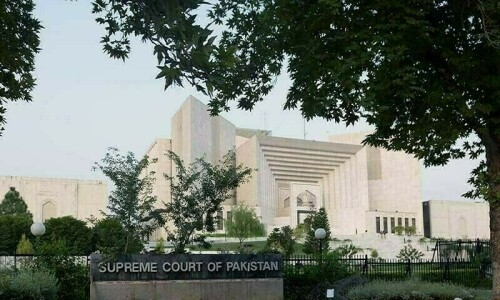ISLAMABAD: Amid ongoing talks with the International Monetary Fund (IMF), the government is likely to introduce a new tariff adjustment mechanism that would keep the average power rates unchanged for up to 18 months and then reduce it by Rs3 per unit by 2024-25 without increasing the circular debt.
The plan prepared by the power division and its subsidiary Central Power Purchasing Agency (CPPA) is aimed at addressing serious economic problems being faced by the people under a nine-year high rate of inflation and resultant political pressure on Prime Minister Imran Khan and his government.
The plan is subject to clearance by the IMF which is currently reviewing Pakistan’s performance for second quarter FY2019-20. It was discussed in detail here on Thursday at a meeting presided over by Prime Minister’s Adviser on Finance & Revenue Dr Abdul Hafeez Shaikh and attended by Minister for Energy Omar Ayub, Special Assistant to the PM on Petroleum Nadeem Babar and secretaries of ministries of energy and finance.
The meeting was called to have an update of the energy ministry’s commitment with the IMF to settle a part of capacity payments to private power producers before the conclusion of the ongoing talks.
The ministry of energy reported to the meeting that it had carried out a comprehensive review of the monthly, quarterly and yearly tariff adjustments under the existing law and found that it required a net increase of Rs1.12 per unit to Rs1.19 per unit over a period of 12-18 months. This working was based on monthly fuel price increases & reductions, quarterly tariff adjustments, prior year and currency fluctuation adjustments on quarterly basis and annual tariff revisions under the Nepra law.
Given the fact that a major part of inflation was driven by energy prices besides high policy rates of the central bank, the prime minister had recently issued instructions to the authorities concerned address inflationary sufferings of the people, particularly those triggered by frequent power tariff hikes.
It was explained that the Rs1.12-1.19 per unit increase had been worked out on an inbuilt monthly fuel price adjustment that was treated as pass through in electricity bills for a specific month and then replaced with fresh adjustment.
A part of the required increase in tariff could be set off against expected efficiency gains and changes to fuel mix.
Simultaneously, special power rates would also be offered to the industry to allow them greater consumption at lower rates to absorb surplus capacity.
The tariff would be offered for a longer period of time for predictability unlike the recent episode under which the government announced 7.5 cents per unit fixed power rates to export sectors and then violated it by adding other cost additions like FPA, quarterly adjustments and various surcharges.
It was explained that a part of the additional fiscal impact would be absorbed within the subsidy approved in the budget with minor tweaking but lead to greater economic activity and help protect existing jobs and generate more job opportunities.
The meeting was told that electricity rates were anticipated to start coming down by September 2020 and then post an average reduction of about Rs3 per unit by 2024-25. The overall average tariff was estimated to come down from about Rs15.30 per unit to about Rs12.50 per unit and average industrial tariff from Rs17 to Rs14 per unit by 2024-15
A senior government official declined to confirm the entire tariff plan saying it would go to the Economic Coordination Committee of the cabinet for approval with prior clearance of the IMF.
Published in Dawn, February 7th, 2020















































